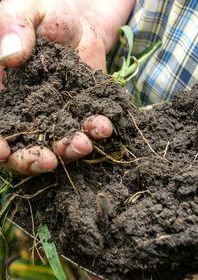
Where are microbiomes, and why are they important?
26 September 2025 publication
Microbes do not exist in isolation. Instead, they live in complex and dynamic communities in which different microbial species are constantly interacting. When these communities are combined with a specific host (for example, humans, animals and plants) or environment (for example, soil and oceans), we refer to the ecosystem as a microbiome.
Microbiomes contribute to fundamental life processes, from influencing nutrient absorption and immune system development in the human gut to supporting plant growth and nutrient cycling in soil. Microbiome research has far-reaching applications across human, animal and environmental health, from strengthening global food security to combatting disease and improving animal welfare. The health of humans, animals and the environment are closely linked and interdependent. Microbiomes serve as a critical link between humans, animals and the environment and are a key contributor to the health of ecosystems.
Unlocking the full potential of the microbiome will require coordinated efforts to overcome significant challenges. For example, research and funding in the microbiome field has been disproportionally directed towards bacteria which infect humans. Only by countries, disciplines and sectors all coming together can we get the most out of microbiome research: driving innovation and promoting balanced outcomes across human, animal and environmental health.
Where are microbiomes, and why are they important?
